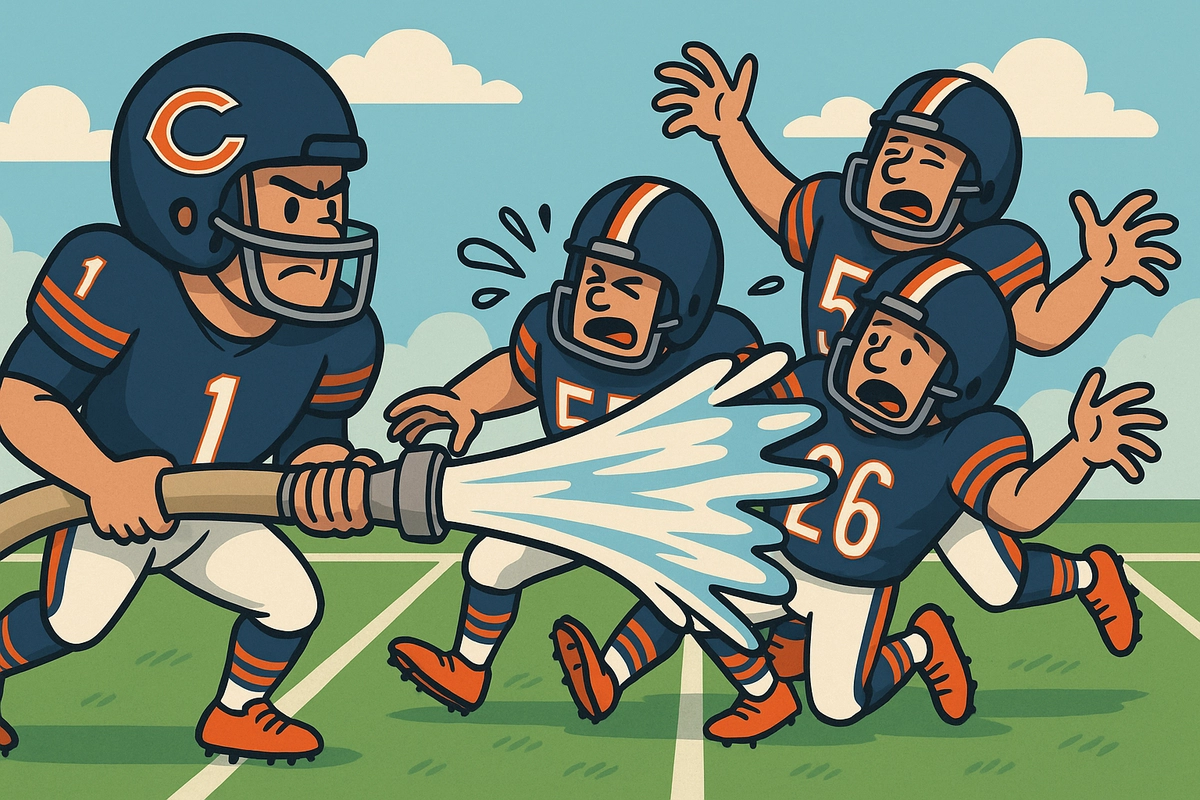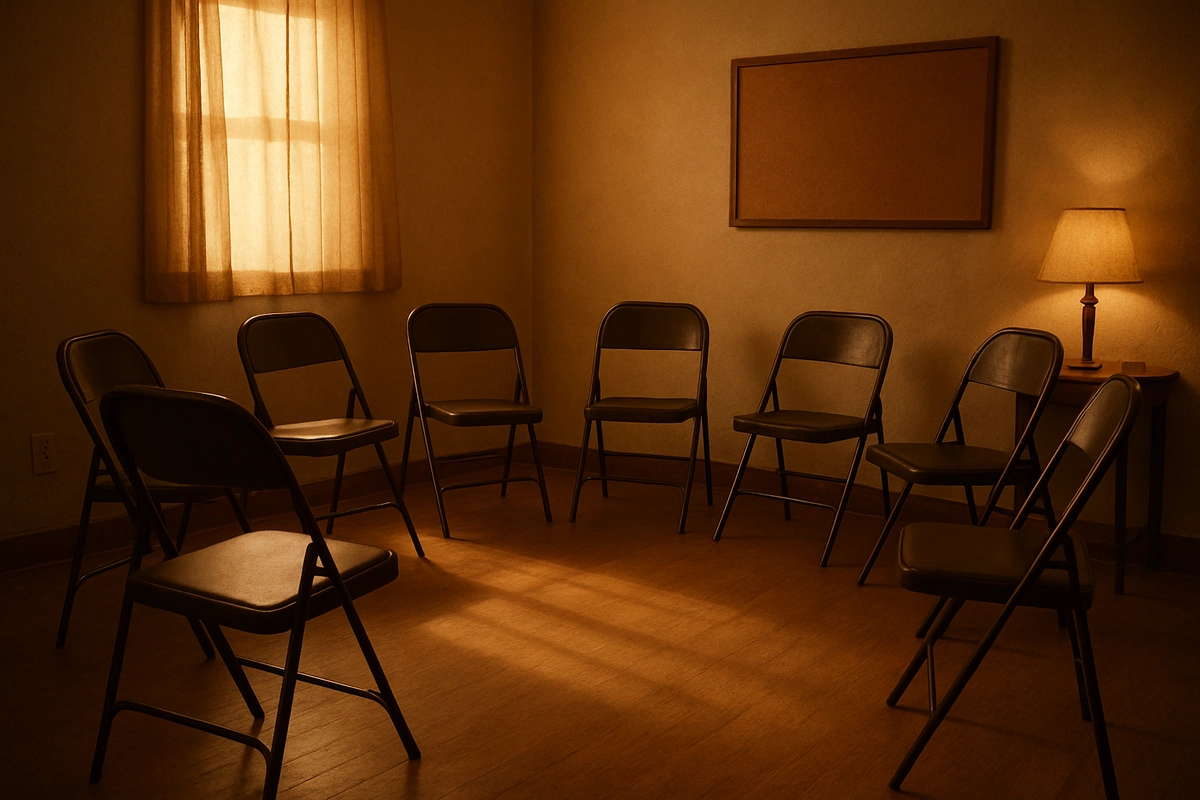This is the third and final installment in our reflection on Step One of the Twelve Steps, viewed through the lens of virtue ethics and Stoicism. In Part I, I shared how the First Step changed my life the moment I heard it. In Part II, we explored the Oxford Group’s influence on A.A. and how the idea of surrender shaped early recovery thinking. Now, we turn to the meaning behind that crucial word: powerless.
A Virtue-Based Interpretation of Powerlessness
Bill W. clearly toned down the First Step a bit when adapting it from the Oxford Group. Where they used “surrender” and “defeat,” Wilson softened it to “powerless.” As a Stoic, that choice of word speaks to me.
As I referenced earlier, the recognition of what is in one’s power to control and what is not is a foundational principle of Stoicism. The concept appears not just from the start, but repeatedly throughout The Manual. Epictetus’ essay on the topic in Book I is powerful and concludes:
…examine it by those rules which you have; and first and chiefly by this: whether it concerns the things which are within our own power or those which are not; and if it concerns anything beyond our power, be prepared to say that it is nothing to you.
Powerlessness as Recognition, Not Defeat
Despite the use of the same words, the approach of these two philosophies is very much different. The A.A. powerlessness over alcohol, inspired by the Oxford Group, is an act of surrender. While there is nothing wrong in and of itself with surrender, it is coming from a standpoint of tearing down in order to build up in a new form.
The Stoic version of this principle of powerlessness is not one of defeat, but one of recognition of one’s limits. It encourages us to look at the burdens we take upon ourselves by worrying over things that are outside of our power. In fact, it’s telling that Epictetus (in translation) refers to those things beyond our power as “weak, dependent, restricted, alien.”
Letting Go, Not Giving Up
Stories of recovery vary greatly, but most who “enter the rooms” do so as skeptics, and many, if not most of them, remain so when they leave. For many it takes a period of weeks, months, or even years before the Steps begin to take hold. For me, the effect was immediate and I learned the lesson of not trying to explain that. Only much later have I had the opportunity to reflect upon why this was the case for me and my conclusion is I approached this Step outside of the normal tradition.
I’ve heard many talks about the First Step and a great many of them focus on making alcohol a demon. The Step itself doesn’t seem to suggest this approach of demonizing alcohol but the sentiment is found throughout the Big Book. In fact, there are repeated references to the personification of alcohol in the form of “John Barleycorn” from an old English and Scottish folk song.
The other object of focus is the end of the Step—how one’s life has become unmanageable. This is definitely an important component to the Step and one that resonated with me as others shared their stories and there were elements of them within my own. Through these stories of unmanageability we’re able to identify with each other and build the fellowship that is at the core of A.A. and a component of its success.
The Difference in Perspective
Where the difference lies between how this Step is often interpreted and how I did is that the powerlessness originates from the alcohol and that it was the alcohol that made our lives unmanageable. It’s embodied in many of the common phrases in the program such as “people, places, and things” being origins of the temptation. While many alcoholics are able to work the remaining Steps and shift their perspective to their own personal accountability, that’s not until much later on. This is set up by the positioning of the Steps as part of a morality play, something that certainly made sense in the 1930s and when considering A.A.’s foundations in the Oxford Group. However, for me, the issue is this Step almost sets up the addict to believe that despite the use of “powerlessness” there’s some belief the issue is from outside of them and as such, it’s something that can be controlled.
When one approaches this Step from the viewpoint of a Stoic, the reasoning is entirely different. The focus for a Stoic is not on alcohol’s power over us, but on the control of alcohol being outside our power. The difference may seem subtle at first, but it’s profound. For me, even in my addiction, I was familiar with the concepts of things that are within my power and those that are not. So, contrary to the typical interpretation of the First Step and its origins in the concept of Surrender from the Oxford Group, based on salvaging one’s morality, I wasn’t surrendering my life at all—I was saying “it is nothing” as Epictetus wrote.
Clarity, Not Shame
This belief—that me and alcohol don’t work with each other—came as an enormous release. For years I had tried to find the reasons for my drinking. In fact, if one goes to just about any meeting you will hear the many reasons for drinking and the blame to be assessed for drinking. Again, this is driven by a motivation that one needs to surrender themselves, in “complete severance from our old self and endeavoring to live by God’s Guidance,” as proselytized by the Oxford Group.
I wasn’t driven by this at all because I was accepting I was an alcoholic and there was nothing, absolutely nothing that I could do to change that. Reasonably consuming alcohol was beyond my power, so I stopped trying. This concept of release is entirely different than the concept of surrender. In the one case I am subjugating myself, almost amplifying the shame I was feeling by looking to sever myself from myself. The last thing I needed at that point was more shame as I had already manufactured mountains of my own. In the other case, I’m letting go of something that is beyond my power to control.
Beyond Control: Letting Go of the Blame
For most of time, alcoholism has been linked to a lack of self-control. So it was for me. I agonized over why I wasn’t able to maintain the self-control to moderate my drinking. After all, millions of people on the planet are able to do this without much difficulty. And so it goes with alcoholics—just a sorry lot who are unable to control themselves. We have a society that somehow believes alcoholics should be able to control themselves as though a paralyzed person should be able to control if they walk or not. The difference is one of these afflictions can be readily seen and verified, and the other cannot.
We play right into this belief when we make a big to-do about avoiding the temptation of “people, places, and things.” Right after the Big Book goes into detail about how alcoholics should be able to do things nobody thinks they should be able to do, it pivots into setting rules for one’s self about not going to a bar without asking “have I any good social, business or personal reason for going to this place?” I live in Wisconsin—if I applied this to myself, I’d never have a decent meal in this state again!
Choosing Clarity Over Surrender
The Oxford Group mocked those who doubted their concept of Surrender by labeling it as defeat. There is one passage in What is the Oxford Group? dripping with sarcasm about not being “strong enough to live your own lives like real men,” attributing the resistance to complete surrender as feigned bravado. One can hear this in the sayings at A.A. meetings with those harboring doubts about their recovery being encouraged to continue drinking and do the “research and development” into living a life of misery. It paints the picture of defeat—of powerlessness—as the only way to build one’s self up again.
As a Stoic, I approached it a different way. I didn’t let anything defeat me—I stopped defeating myself. I recognized where I was powerless and let it go. I was empowered by the First Step, not humbled. For those in the Oxford Group, surrender was necessary to move on to the core of their beliefs, the “Four Absolutes.” For me it reinforced the ancient cardinal virtue of wisdom, first, that almost nothing is absolute (particularly concerning human nature) and second, identifying things that are outside of my power to control.
For the first time, it dawned on me that I am an alcoholic. Again, nothing I do will change that. Nothing compelled me or enticed me to drink outside of my own desire to assert power over something I was powerless to control. Once I realized I had to stop trying to understand the “why” of my drinking, stop finding the causes of my inability to control my drinking, and just accept who I am as an alcoholic, it was quite easy for me. And I haven’t had a drink or been much tempted to take one since.
From Surrender to Alignment
What the virtue-based approach offers is a reframing: not surrender in the sense of defeat, but clarity in the form of alignment. Where the Oxford Group called for submission, and A.A. emphasized admission, the Stoic — and by extension, virtue-based — view asks for recognition. We’re not abandoning selfhood; we’re shedding illusion and embracing wisdom. Not broken sinners, but flawed human beings learning to live in harmony with reality.
This is not about giving up. It’s about letting go — of control, of blame, of illusion. That is the true power in powerlessness.
In our next article, we’ll turn to Step Two—where powerlessness meets possibility. What does it mean to believe in something greater than ourselves, especially for those of us who resist conventional faith?





Comments